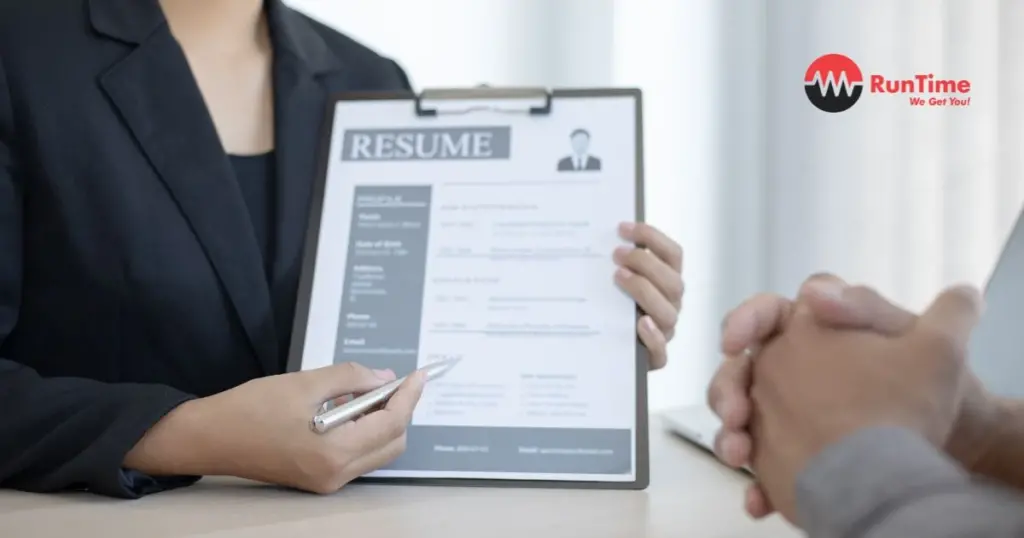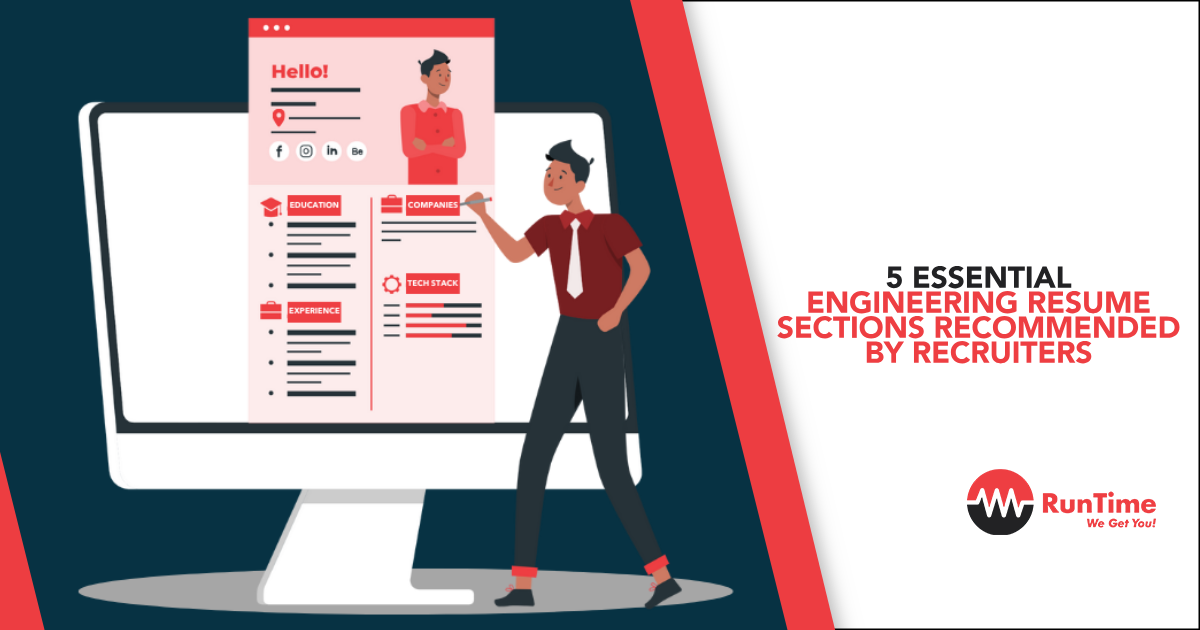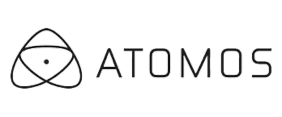When applying for an engineering job, your resume is your first impression. If you want to make a great impression on potential employers, it’s important to ensure that your resume stands out from the competition. To help you make sure your engineering resume is up-to-date and contains the right information to highlight your experience and skills, here are five essential engineering resume sections recommended by recruiters.
Key Takeaways
- Including your location on your engineering resume is crucial as it helps recruiters assess logistical factors and your proximity to the job, with openness to relocation being a valuable addition.
- Focus on showcasing roles directly related to the job you’re applying for, using action verbs to quantify your impact and demonstrate your skill set’s depth.
- List your tech proficiency and educational background, emphasizing how you’ve applied your tech skills and considering including certifications and online courses to showcase your commitment to ongoing learning in engineering.
Essential Engineering Resume Sections
Learn about the importance of each section and how to include them in your engineering resume to ensure that it’s attractive and attention-grabbing for recruiters.
1. Location
The importance of your location on your resume cannot be overstated. You may wonder, “Why does it matter?” Recruiters want to quickly identify potential logistical issues or advantages associated with where candidates reside. If you live near the company’s location, it may increase your chances of being called for an interview. It’s always essential to include your city and state, but not necessarily your complete address. However, if you’re open to relocating, make sure to mention it.
2. Experience
Your professional experience is the backbone of your resume. It’s where potential employers will look to understand the depth of your skill set and the contributions you can make to their team. Focus on highlighting roles that are relevant to the job you’re applying for. Use action verbs to describe your duties and accomplishments in these roles. Ensure you quantify the impact you made wherever possible, such as by stating the percentage by which you increased productivity or reduced costs.
3. Companies You Worked For
The names of the companies where you’ve worked can provide hiring managers with insights into your background. Working for well-known firms in the engineering industry can strengthen your resume, as it indicates that you’ve navigated and succeeded in competitive environments. Include the locations and the dates of your employment for each company.

4. Tech Stack
Your tech stack is a crucial section of your engineering resume [1]. It refers to the technologies, programming languages, software, and tools that you’re proficient in. Don’t just list these tools—describe how you’ve used them in your past roles to solve problems or achieve goals. If you’re familiar with any emerging or niche technologies relevant to the job description, be sure to include these as well.
5. Educational Background
Your educational background should include the degrees you’ve obtained, the institutions you attended, and the dates of your graduation. If you’ve earned a degree in a field closely related to the job you’re applying for, this could give you an edge over other candidates. However, don’t neglect to mention non-degree education such as certifications, online courses, and professional development workshops—these can demonstrate a commitment to continuous learning, a vital trait in the ever-evolving field of engineering.
In addition to these essential resume sections, make sure to also include optional sections that could help you stand out from the crowd. These could include sections on projects you’ve completed, awards and recognitions you’ve received, relevant memberships in professional associations, or even a section on your hobbies and interests if they are relevant to the job you are applying for.
However, remember that recruiters typically spend only a few seconds glancing over each resume. Therefore, it’s crucial to keep your resume concise and to the point. Avoid overloading it with unnecessary information. Instead, focus on showcasing your key strengths and achievements in a clear, well-organized manner.
Related Article: 7 Proven LinkedIn Hacks for Engineers
Conclusion
A well-crafted engineering resume requires careful thought and attention to detail. By considering the five essential sections—location, experience, companies worked for, tech stack, and educational background—you can create a resume that not only catches the eye of recruiters but also accurately portrays your qualifications and potential as an engineer.
Make Your Dream Job a Reality with RunTime Recruitment
Our expert team of engineers-turned-recruiters offers in-depth knowledge of technical recruiting in the engineering industry and is dedicated to providing you with invaluable guidance and support throughout your job search journey.
If you’re a highly skilled engineer seeking new opportunities, explore job vacancies on RunTime Recruitment’s job site.
Submit Resume









